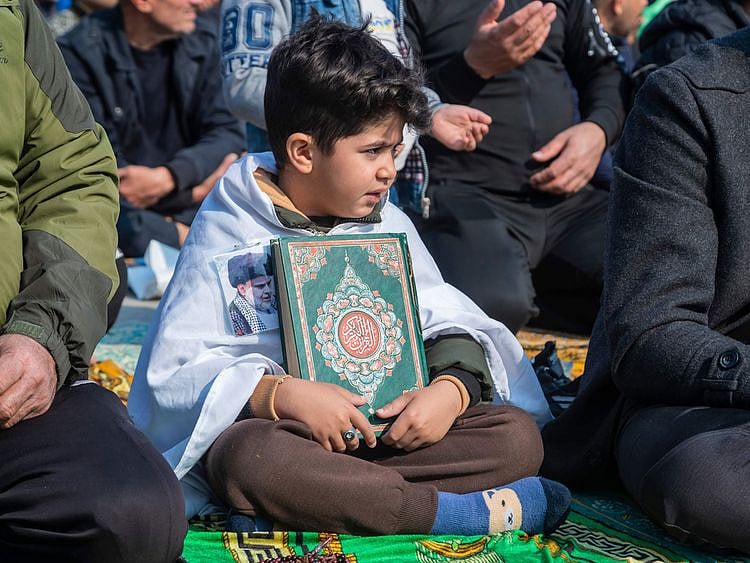Insulting Muslims is not free speech, it’s hate crime
Muslims in Europe must push for laws that make insulting Islam a hate crime

The debate over the limits of free speech, which is a tenet of liberal democratic societies, will erupt every time an ignorant person seeking fame and controversy commits the abhorrent act of burning and desecrating the Quran. By doing so, that person — under the guise of freedom of expression — hopes to trigger the anger and condemnation of millions of Muslims all over the world. And that is exactly what usually happens.
Put aside the possibility that such acts feed extremists on all sides and may lead to retaliatory and criminal acts that cannot be justified, as in the cases of the Danish newspaper Jyllands-Posten which published derogatory cartoons depicting Prophet Mohammad (PBUH) in 2005 and the same with Charlie Hebdo magazine in France in 2012. In both cases, there was retaliation, and in the case of Charlie Hebdo, it led to a deadly outcome.
Last week a far-right Swedish politician burnt a copy of the Quran in Stockholm. The government denounced the act but underlined that what he had done came under his right to free speech. Since then, the politician who committed the vile act claimed to have received death threats.
Muslims must express anger and disgust without incitement
It is easy for western politicians to claim that burning the Quran or lampooning the Prophet cannot be banned because it would be a violation of democratic principles. But the issue is much more complicated than that. There are limits to one’s freedom of expression if it insults the beliefs of millions. Ironically, Muslims, even those living in western democracies, would not dare desecrate the Bible or insult Jesus Christ.
On the other hand, Muslims should condemn acts of violence against those who insult them. They should seek to demonstrate religious tolerance even as they express anger and dismay at anyone who attacks their beliefs.
Those seeking fame by attacking the faith of billions of people will only receive notoriety. By doing so, they do not belittle Islam or diminish its influence across nations. It is the right of Muslims to express anger and disgust at such acts, but their protests must not lead to incitement.
The debate over free speech should be an ongoing one. It must not be initiated only when a fanatic insults Muslims and their faith. The reality is that there are limits to free speech in the West. It is only when the issue of insulting Islam is raised that politicians say that their hands are tied.
The UN Strategy and Plan of Action on Hate Speech defines hate speech as …“any kind of communication in speech, writing or behaviour, that attacks or uses pejorative or discriminatory language with reference to a person or a group on the basis of who they are, in other words, based on their religion, ethnicity, nationality, race, colour, descent, gender or other identity factor.”
But the UN admits that, to date, there is no universal definition of hate speech under international human rights law. The concept is still under discussion, especially in relation to freedom of opinion and expression, non-discrimination and equality.
While the US Supreme Court considers hate speech protected under the First Amendment and has rejected government attempts to criminalise it, social media platforms censor posts by users that it categorises as hate speech that calls for incitement. Former President Donald Trump was banned from Twitter and Facebook for violating community rules.
Still, in 2021 the US House of Representatives adopted a bill entitled Preventing anti-Semitic Hate Crimes and expanded the Department of Justice’s powers to investigate hate crimes against Jews.
In the UK, any crime can be prosecuted as a hate crime if the offender has either: demonstrated hostility based on race, religion, disability, sexual orientation or transgender identity or been motivated by hostility based on race, religion, disability, sexual orientation or transgender identity.
In France, the Law on the Freedom of the Press of 29 July 1881 guarantees freedom of the press, subject to several prohibitions. Article 24 prohibits anyone from publicly inciting another to discriminate against, or to hate or to harm, a person or a group for belonging or not belonging, in fact or in fancy, to an ethnicity, a nation, a race, a religion, a sex, or a sexual orientation, or for having a handicap. Articles 32 and 33 prohibit anyone from publicly defaming or insulting a person or group for belonging or not belonging, in fact or in fancy, to an ethnicity, a nation, a race, a religion, a sex, or a sexual orientation, or for having a handicap.
Limits on free speech
In fact, 16 European countries, along with Canada and Israel, have laws against Holocaust denial. Just like anti-Semitism is considered a hate crime in a number of European countries, Muslims living there should seek to enact laws that consider insulting their faith as a hate crime that leads to incitement and violence.
The claim that burning the Quran falls under free speech is hypocritical. Just as western countries have enacted laws criminalising anti-Semitism, Holocaust denial and those discriminating against LGBT people; they can take the extra step to protect those who are discriminated against because of their faith or those who have become the subject of hate speech because of their religion.
At the end of the day, these societies had imposed limits on free speech when they saw the need to do so. The priority must be given to protecting all members of society because the right of one man must not come at the expense of the rights of others.
— Osama Al Sharif is a journalist and political commentator based in Amman.
Sign up for the Daily Briefing
Get the latest news and updates straight to your inbox
Network Links
GN StoreDownload our app
© Al Nisr Publishing LLC 2025. All rights reserved.